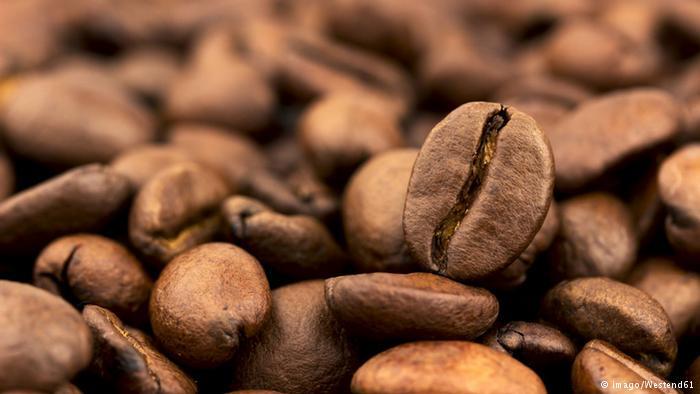Western consumers benefit from a supply chain that penetrates into the farthest reaches of the developing world. We get products from all over the globe cheaply but these often come at the expense of local producers and the environment. B corporations, or B-Corps, are trying to change that by doing business in a transparent and sustainable way. Tea, coffee and chocolate are just a few of the items many in the industrialized world buy quite cheaply and consume on a regular basis – this despite the fact that they come to us from the far corners of the world. However, the low production cost of these goods is disproportionate to their severe environmental impact. Perhaps if shoppers knew the dark legacy of some of the goods that they purchased, it would give them pause. For instance, broad swaths of ecologically sensitive habitats – such as rainforests and wetlands – continue to be destroyed to make way for crops, livestock and human settlements. This contributes to deforestation, which fragments habitats for many species and accounts for roughly 12 percent of global annual greenhouse gas emissions. Many farmers and small-scale producers in tropical zones are being squeezed by middlemen and faced with market forces beyond their control. The deeper paradox is that some of the wealthiest countries in terms of natural resources and biodiversity are among the poorest on Earth in economic and development terms. B for beneficial A growing number of socially conscious entrepreneurs no longer want to go along with this paradigm. This has led to the rise of a new type of business called benefit corporations: companies that promote environmental and social issues while also striving to make money. To insure that the B-Corp label is more than lip service, the United States-based nonprofit organization B Lab has established a certification process. This assesses prospective benefit corporations, and awards official B-Corp status in much the same way that the Green Building Council certifies LEED buildings, and the USDA monitors production of food for an organic label in the US. As of June 2015, more than 1,300 companies have joined the B Lab network, ranging in size from the publicly traded Etsy to microenterprises that employ just a handful of people. B-Corps are active in 121 industries, which sell a range of products and services to businesses and consumers in 41 countries around the world. Prior to joining, B Lab puts each company through a rigorous assessment process intended to promote transparency and competition between participants. Among the most notable certified brands are Patagonia, Ben & Jerry’s, and Seventh Generation. Better pay, better coffee One such company striving to do well by doing good is Caravela Coffee, a purveyor of eco-friendly coffee. Growers are paid consistent with their work ethic – and their ability to grow high-quality beans. Based in Bogota, Colombia, Caravela Coffee has found a niche for premium coffee beans among discriminating buyers. Cofounder Alejandro Cadena says that initially, they were “looking for a way to ‘decommodify’ coffee and therefore pay the coffee growers a much better price.” Founded 15 years ago when interest in high-end coffee started to grow, Caravela Coffee now sells coffee beans to specialty roasters the world over. According to Cadena, roasters want to know “the story behind the beans” – meaning, how they’re grown and by whom. All that translates into a better cup of coffee, Cadena contends. To ensure that high standards are met, Caravela’s staff gets involved in every aspect of production, from consulting with coffee growers on best practices to sales in cities like London or Sydney. In order to maintain strong ties with growers, the company has warehouses located in remote regions of Colombia’s rugged countryside, often run by small-scale coffee-producing families. “Instead of being colonizers, we are a part of the community,” says Cadena. ‘Best for the world, not in the world’ The coffee company is part of a growing number of food enterprises active in Asia, Latin America and Africa that either are B-Corps, or adhere to a similar philosophy and are eager to polish their social-impact credentials and promote their ties to small-scale growers. Many of these like-minded businesses reside in foodie hubs that cater to affluent consumers. Aware of the dark side of food production thanks to social media, such consumers expect more from retailers than just a bargain. “At the core, we’re trying to redefine success in business,” says B Lab cofounder Bart Houlahan. Such companies in this movement “compete to be best for the world, not just best in the world.” The goal is to get companies engaged in addressing the challenges that are facing society and the environment, he says. What would Adam Smith think? Skeptics dismiss this business model – based in part on altruism – as naive. However, the concept could be as old as modern economic theory itself. Philosopher Adam Smith, whose book “The Wealth of Nations” first described many aspects of today’s free-market system, was equally committed to the idea that marketplace participation should benefit everyone, not just the elites. Not just private wealth, but also public benefit “is now a common conversation in the marketplace, and one of the ways in which companies are competing,” says Houlahan. “It’s not only the right thing to do, but it’s also a better way of doing business.” DW














